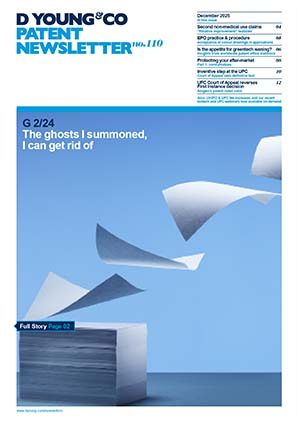Inter partes review - challenges at US Supreme Court
In two recent decisions published simultaneously the US Supreme Court examines the constitutionality and the extent of inter partes review (IPR) at the Patent Trial and Appeal Board (PTAB).
As discussed in our previous issues, most recently in our article on US tribal sovereign immunity US law provides for a number of post-grant challenges to be made to the validity of patent rights.
The two recent cases handed down in late April 2018 concern one route to challenging granted US patents known as the inter partes review (IPR). Controversially, IPRs are conducted in front of the PTAB which is an administrative law body of the United States Patent and Trademark Office (USPTO) as opposed to an “Article III” judicial Federal Court.
Oil States Energy Services v Greene’s Energy Group
The first case, Oil States Energy Services v Greene’s Energy Group, has been highly awaited as it considers head-on this controversial issue of whether an administrative body has the constitutional power to deprive a party of a patent right once granted.
Specifically the question considered was whether IPR proceedings violate Article III of the Constitution or the Seventh Amendment to the US Constitution.
The introductory portion of Article III reads: “The judicial Power of the United States, shall be vested in one supreme Court, and in such inferior Courts as the Congress may from time to time ordain and establish.”
The issue in the present case is that the PTAB is not an Article III court. If the ability to contest the validity of patents post-grant is restricted to Article III courts, then the PTAB is not a valid venue.
The Seventh Amendment reads: “In Suits at common law, where the value in controversy shall exceed twenty dollars, the right of trial by jury shall be preserved, and no fact tried by a jury, shall be otherwise re-examined in any Court of the United States, than according to the rules of the common law.”
As patent cases typically exceed twenty dollars in value, the problem here is that the PTAB as an administrative body does not use a jury, it instead uses administrative patent judges. Hence IPRs may violate the Seventh Amendment right to a trial by jury.
In the Supreme Court’s decision, Justice Thomas, writing for the 7-2 majority, concludes that the grant of a patent should be considered as akin to a public right as opposed to a private property right. As such, the Constitution does not prohibit the USPTO from resolving issues of validity post-grant in a venue other than an Article III Court.
Important to this analysis was that the court considered that there was a lack of any meaningful distinction between the initial grant of the patent by the USPTO and IPR proceedings: “[p]atent claims are granted subject to the qualifications that the PTO has ‘the authority to reexamine – and perhaps cancel – a patent claim’ in an inter partes review.”
SAS Institute Inc v Iancu
The second case, SAS Institute Inc v Iancu, was far less keenly awaited but may end up having the greater effect on practice going forward. The case was on the narrow, but significant, point of whether the PTAB when instituting (that is, deciding to proceed with) a case may proceed on a subset of claims or whether they must proceed on every challenged claim.
The current practice, as set out by rule 37 C.F.R. § 41.108(a), was that the PTAB could institute an IPR on only a subset of the challenged claims.
The decision was a close one (5-4), which is unusual for patent cases heard in the Supreme Court. The majority decided to overturn current practice, stating that the decision to institute is binary: either the PTAB decides to institute, in which case a decision must be given on all challenged claims; or the PTAB can decide not to institute at all.
Conclusion
While these cases represent an important step towards certainty with regards to IPRs, a number of important aspects remain undecided. For example, while IPRs have been confirmed as constitutional, it remains undecided whether the retrospective effect of IPRs on patents granted before the America Invents Act is constitutional. Of most practical immediate effect, the judgement in SAS Institute Inc v Iancu leaves the status of the hundreds of outstanding appeals from the PTAB at the Federal Circuit that were instituted on only a subset of the petitioner’s challenged claims in legal limbo.
Related articles
US tribal sovereign immunity - Allergan & Saint Regis, Anton Baker, 24 April 2018.
Oil States Energy v Greene’s Energy: Are IPRs unconstitutional? Holly Cowie, 26 February 2018.


